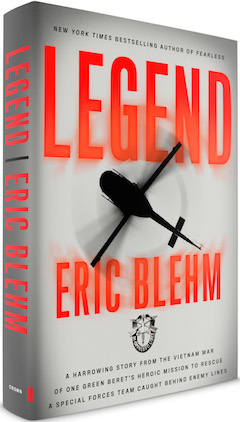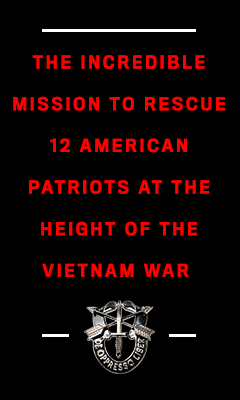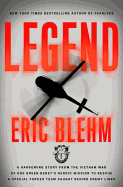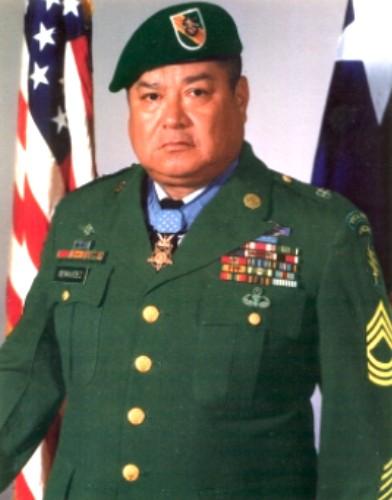Legend: A Harrowing Story from the Vietnam War of One Green Beret's Heroic Mission to Rescue a Special Forces Team Caught Behind Enemy Lines
by Eric Blehm
Journalist Eric Blehm has made a career of writing about men on the primal fringes of civilization, where distinguishing right from wrong becomes subservient to surviving and where behavior is driven by a sense of sacrifice and service. He is something of a "hero chaser," tapping the stories of military warriors and outdoorsmen for whom extreme stress is the norm and survival a very real challenge. The power of his books comes from his unrestrained access to those closest to the story and his dogged determination to get the story right. A wilderness outdoorsman with a taste for extreme snowboarding and climbing and the first journalist to participate in a rigorous Army Ranger training mission, Blehm fits the rugged hero profile himself, and so is comfortably accepted by those who actually lived the stories he tells.
In The Last Season Blehm wrote of the mysterious disappearance of experienced backcountry National Parks Ranger Randy Morgenson, a man so dedicated to the natural resources around him that it consumes him--at the expense of his family and ultimately his life. The Only Thing Worth Dying For describes the improbable success of 11 Green Berets who defeated a Taliban stronghold in the Uruzgan Province and put local Pashtun leader Hamid Karzai on the road to his eventual presidency of the country. In Fearless, Blehm covered the heroic story of Adam Brown and his elite Navy Seal Team Six (which later assassinated Osama Bin Laden) on a fatal mission in the Hind Kush mountains.
Now, in Legend, Blehm turns back the clock to the Vietnam War. One would think that our already sagging bookshelves of Vietnam War books don't need yet another one. This war has been covered by a broad selection of writers, from Tim O'Brien (Going After Cacciato) to Karl Marlantes (Matterhorn). But with Blehm's stirring story of Master Sergeant Raul "Roy" Benavidez's rescue of a hopelessly surrounded small Green Beret squad on a 1968 covert mission near the Ho Chi Minh Trail in Cambodia, we need to make room for another piece of the complicated, politically divisive puzzle that was the Vietnam War.
The Roy Benavidez story has already been told in his two co-written autobiographies (Medal of Honor and The Three Wars of Roy Benavidez), over too many beers in late-night VFW posts, in news articles reporting his frustrating wait to receive the Medal of Honor, and in school classrooms where Benavidez often inspired students. But Blehm's ability to run down key participants at the scene and to tap their memories brings to the story the graphic boots-in-the-jungle and butts-in-the Huey-seats details of what Hemingway famously called "grace under pressure." This is the kind of story that made Hollywood stars out of John Wayne and Bruce Willis.
Benavidez was born into a half-Mexican, half-Yaqui Indian family and grew up picking sugar beets and shining shoes in El Campo, Tex., a small farm town southwest of Houston. He could trace his family to Mexicans who fought alongside Texans for independence from Mexico. As a kid he was a scrapper who wouldn't take belittling from bullies dissing his Mexican looks and stood up for the younger kids. School didn't suit him and he dropped out to try his hand (unsuccessfully) at Golden Gloves boxing. His fascination with fellow Texan war and movie hero Audie Murphy led him to join the Texas National Guard. The military life suited Benavidez--he found teammates and support. But he wanted more, and so went to Houston in 1955 and "strutted his five-foot-six, 130 pounds of machismo" to the army recruiter and badgered his way into acceptance to the famous Airborne Division. By 1965 he was in Vietnam, building infrastructure bases and training South Vietnamese soldiers on in-country patrols. During that tour he stepped on a mine that fractured his spine, and the army docs said his war days were over--he likely would never walk again.
Blehm's story really begins with Benavidez's impressive tenacity and perseverance, which helped him to regain the use of his back and legs, and to achieve a coveted position in the Special Forces Green Berets. He wanted desperately to return to Vietnam to support the troops he had left behind. As a Green Beret, Benavidez volunteered to fly on a rescue mission into a highly secret small reconnaissance operation across the Cambodian border--one of many that President Lyndon Johnson publicly insisted were not happening. With access to recently declassified documents and first-hand accounts from soldiers who participated in the raids, Blehm revises the "white-washed" story of Benavidez's assignment to show the many obstacles soldiers had to overcome to complete missions and get out alive while keeping their location in Cambodia secret.
In May 1968, Special Forces Detachment B-56 (three U.S. Green Berets and nine South Vietnamese soldiers) was ambushed and surrounded by hundreds of NVA soldiers. The first choppers sent to extract them were shot down or diverted by heavy fire. The most lucid American still alive and in command by default was radio operator Brian O'Connor. His eyewitness account of their rescue by Roy Benavidez brings to life this never-say-die soldier who voluntarily joined the returning 240th Assault Helicopter Company on this heroic mission and endured a half a dozen serious wounds while dragging the three survivors and nine KIA to the choppers. In his adrenaline rush and with poor blood-soaked vision, he also inadvertently tossed three dead NVA soldiers aboard. Then he collapsed. Back at the base, medics mistakenly piled him with the enemy corpses and had his body-bag nearly zipped shut before he was recognized.
The basis of Legend's most dramatic pages of battlefield action, O'Connor's account also became the support that the award committee needed to finally grant Benavidez the Medal of Honor. Known among his fellow Green Berets by the radio moniker TANGO MIKE MIKE ("The Mean Mexican"), Benavidez didn't get the full recognition he had earned until O'Connor's testimony at last became public in 1981.
Like his earlier books, Blehm's Legend is a story of exceptional heroism in the face of horrific danger. In going back to the 50-year-old Vietnam War, he reaffirms his belief that the sometimes small stories of men at risk that have taken place throughout history deserve to find a larger place in the hearts and minds of others who may be called upon in the future. In O'Connor's words, Benavidez was a man who "from the moment he jumped out of the chopper until his last recovery run... was in complete control of us, the survivors, the support, as well as himself." Not a bad definition of a hero no matter the circumstances. Put this one next to We Were Soldiers Once... and Young. --Bruce Jacobs









